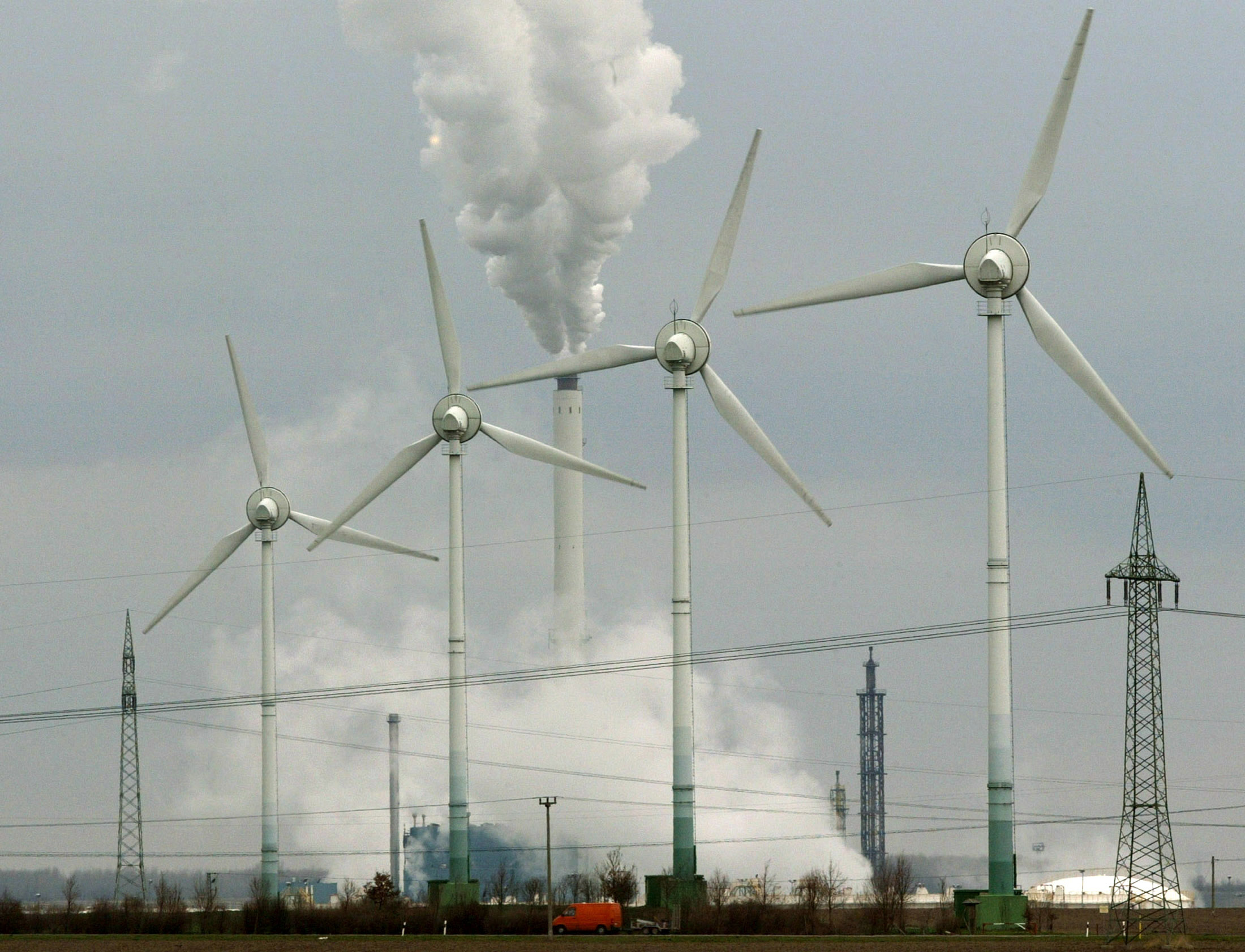
Germany on track to reach 2030 targets, environment agency says

By Riham Alkousaa
BERLIN (Reuters) -Germany’s greenhouse emissions fell by around 10% in 2023, the biggest drop since the 1990 reunification, the country reported on Friday as its economy shrank while green power production rose.
Europe’s biggest economy shrank by 0.3% last year due high energy prices and weak foreign demand for its exports.
Germany has been the engine of Europe’s economy for decades in part due to cheap supplies of Russian gas, which Berlin stopped importing following Moscow’s invasion of Ukraine.
Germany’s industrial production emissions fell by 7.7%, the Federal Environment Agency (UBA) said.
Industrial output fell by only 1.2% last year, despite bigger drops in energy-intensive industries such as chemicals and metals, where production fell by almost 8% and 5.3% respectively, data by the VCI and BDI associations showed.
When asked if the drop in emissions was due to a weaker economy rather than a sustainable decline, Climate Action and Economy Minister Robert Habeck said that, while 2023 had been an exceptional year and the government expected a “complete economic recovery”, further planned measures would help maintain the progress made.
UBA said Germany was on track to meet its 2030 climate targets after emissions fell to 673 million tons last year, confirming preliminary projections.
Germany aims to cut emissions by 65% by 2030 compared with 1990 and becoming carbon neutral by 2045. It is currently at around 46%.
Berlin hopes emissions will fall further with companies encouraged by recently launched “climate protection contracts” that compensated for extra costs of green production.
In addition, the government counts on companies moving from fossil fuel to electricity to run their factories and CO2 emissions pricing to drive industry toward climate neutrality, Dirk Messner, UBA president told a press conference on Friday.
In the energy sector, power plant emissions fell significantly due to rising power production from renewables, which covered almost 52% of electricity consumption last year.
A rise in imported electricity, including from French nuclear reactors, and a 4% decline in total energy consumption also helped cut emissions.
In the emissions in the buildings sector, mainly heating, fell by more than 7% due to a mild winter. Last year, Germany passed a bill on phasing out oil and gas heating systems, a step to help cut emissions further.
(Reporting by Riham Alkousaa; Editing by Alex Richardson)



























